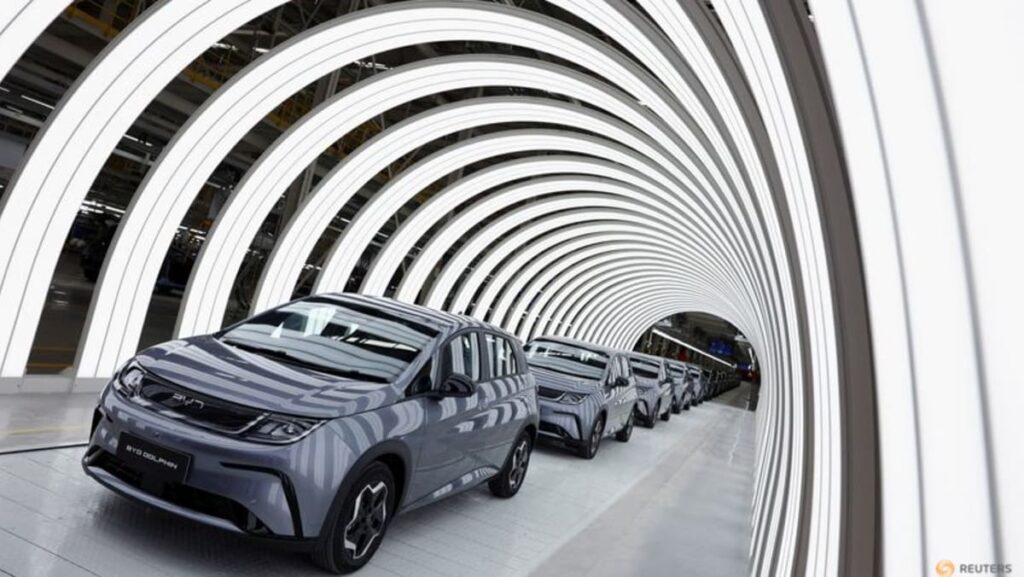With more brands in the market, however, the market has become more competitive, said Krisda.
“The total size of the cake has not increased. But it’s being divided among many more players, new competitors, new brands to the market,” he said.
“So, each brand has to really fight to keep its market share within this shrinking cake that we are seeing.”
Foreign companies on the EV scheme had not been allowed to count vehicles manufactured and exported from Thailand as part of their local production quotas.
Instead, only EVs produced in Thailand and sold locally could be counted in the production quotas.
This means they have faced the dilemma of manufacturing more cars than the local market demanded, or being unable to import other models currently not built locally.
It has contributed to the glut of local supply and weakened export numbers.
But on Jul 31, Thailand’s National Electric Vehicle Policy Committee made amendments to that policy; vehicles built in Thailand and then exported will count towards the quota.
The flexibility, it said, could result in EV exports increasing to 52,000 units in 2026, up from only 12,500 this year.
It could be a major step to helping Thailand regain its place as a key regional manufacturing and export hub, like it was in the past, Krisda said.
“Exports play a much more important role in taking up the total capacity of production over many years and will still play a crucial role for us ahead,” he said.
While Thailand remains the 10th largest car producer in the world, the 1.47 million units it produced in 2024 were still below the pre-COVID-19 levels of 2019, when it produced 2.01 million units.
Thailand’s neighbours will not be slowing down in their own efforts to forge industries centred around EVs.
For Thailand, “the threats become more urgent as EVs become more significant”, Pavida said.
She noted that Indonesia is focusing more on the upstream industries like batteries and attracting investors on the back of a wealth of natural resources.
Vietnam, meanwhile, has pushed more assertively on the downstream with its own brands, unsaddled by the presence or demands of Japanese carmakers.
Thailand has sat in the middle for now, due to the legacy strength of its manufacturing, she said.
“It remains to be seen which country will come out as the winner.”
For Thailand, long mythified as the “Detroit of the East”, a comparison to the American city’s 20th-century legacy as the heart of the US auto industry, much is at stake.
Detroit became a symbol of industrial decline, unable to overcome a reliance on outdated auto technology and resistant to change and innovation. It is reason enough for Thailand to reject such a label and forge a brave new path, Krisda said.
“I don’t know why they keep calling us Detroit,” he said.
“I don’t really see the word ‘Detroit’ fitting in with what we see happening here.”
https://www.channelnewsasia.com/asia/thailand-automotive-evs-china-production-tariffs-5284516


